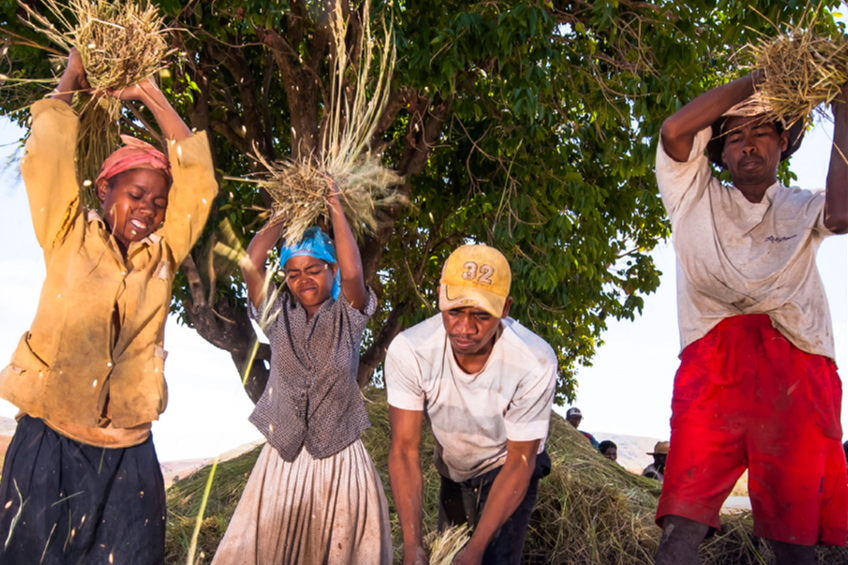The World Rural Forum, together with 7 of its regional member organisations representing family farming in Africa, Asia, Latin America, and the Pacific, alongside other key allies, are part of a new report unveiling international climate funding directed towards family farming.
November 16, 2023 – The recent report conducted by Climate Focus and published by the World Rural Forum sheds light on inequities in funding to address climate change. Despite family farmers producing a third of the world’s food, only a mere 0.3% of the international climate finance has been directed to them.
Alongside the World Rural Forum (FRM), the family farmer organisations participating in the report are: Eastern Africa Farmers Federation (EAFF), Eastern and Southern Africa Small-Scale Farmers’ Forum (ESAFF), Regional Platform of Farmers’ Organisations in Central Africa (PROPAC), Maghreb and North African Farmers Union (UMNAGRI), Network of West African Farmers’ and Producers’ Organisations of (ROPPA), Asian Farmers’ Association for Sustainable Rural Development (AFA), Pacific Islands Farmers Organisation Network (PIFON), Confederation of Family Farmers Producers’ Organizations of Greater Mercosur (COPROFAM), and the Regional Rural Dialogue Program (PDRR).
The detailed analysis, conducted by Climate Focus in collaboration with the said organisations, the FFF and the FFORA, reveals an alarming situation: despite their crucial role in global food security, most family farmers lack adequate financial support to adapt to climate challenges.
Hakim Baliraine, President of ESAFF and a member of the WRF, underscored the urgency of this situation: “The climate crisis has pushed hunger to 122 million people since 2019. Reversing this trend won’t be possible if governments continue to tie the hands of millions of family farmers.”
The report outlines that 80% of climate funding aimed at the agri-food sector is channelled through recipient governments and NGOs of donor countries. This creates significant barriers for family farming organisations to access these funds due to complex eligibility regulations and a lack of information on how to apply for these resources.
Alberto Broch, President of COPROFAM and Vice President of the WRF, emphasized: “Our message to governments is clear: There is a vast accumulated knowledge that is imperative to harness. Over 600 million family farms are already committed to building more sustainable and resilient food systems.”
Esther Penunia, Secretary General of AFA and a member of the WRF, stated: “Generations of family farming experience and the latest scientific evidence demonstrate that working with nature and empowering local communities is key to safeguarding food production in an ever-changing climate. A major re-evaluation of climate finance is needed to support these proven climate solutions, allocating much more funding to family farmers and sustainable practices such as agroecology.”
Indeed, within a context of the dramatic impact of the climate crisis on family farming production systems in many territories, this report highlights the need to reorient international climate finance to facilitate the transition of family farming towards more sustainable and agroecological agronomic practices. Which, in turn, will help them to overcome family farmers’ vulnerability to extreme weather phenomena by investing in available assets, while strengthening public policies specific for family farming.
The World Rural Forum will facilitate the participation of an international delegation of family farmers at the upcoming climate summit, COP28, proposing a greater role for family farming in climate negotiations and funds, recognizing its catalytic role in the climate action, the transformation of food systems, and the protection of biodiversity.
Download the full report here



